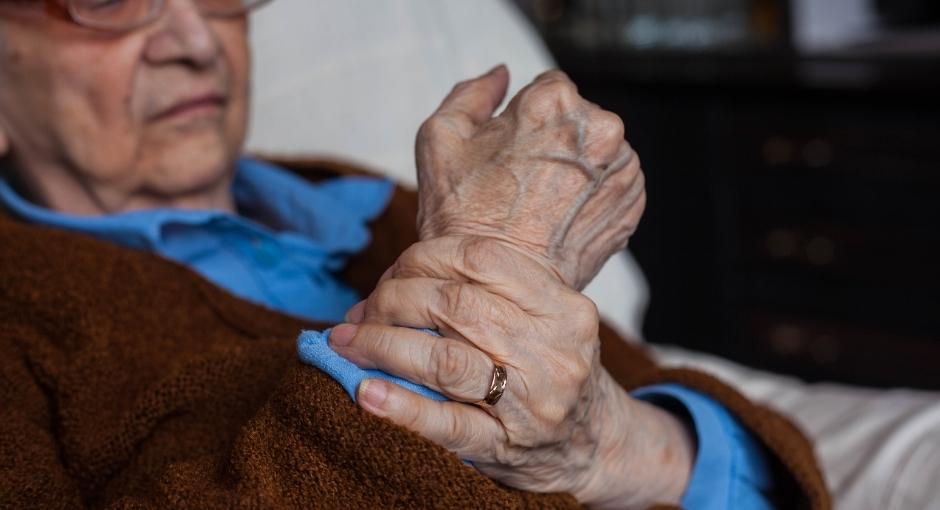Rigidity
💡 Quick Summary
-
Rigidity, or muscle stiffness, is a common PD symptom that causes tightness and reduced range of motion in the arms, legs or trunk.
-
Can lead to muscle pain and achiness.
-
Can result in reduced arm swing, facial stiffness (facial masking) and sleep difficulties due to nighttime stiffness and limited mobility in bed.
-
Rigidity is one of the three key symptoms used to diagnose PD, along with slowness of movement (bradykinesia) and rest tremor.

Rigidity, while seldom the main symptom early in Parkinson’s disease (PD), is experienced as a stiffness of the arms or legs beyond what would result from normal aging or arthritis. Some people call it “tightness” in their limbs. Stiffness can occur on one or both sides of the body and contribute to a decreased range of motion. This can lead to problems with achiness or pain in the muscles or joints affected.
Many people with PD will have a reduced arm swing when walking, more so on the most affected side. Rigidity of the trunk is also possible, as is stiffness of the facial muscles, which contributes to facial masking.
Rigidity can also negatively impact sleep quality. Stiffness in the late evening and poor mobility in bed can make it hard to fall and stay asleep at night.
Rigidity is one of three telltale symptoms that help doctors make a Parkinson’s diagnosis. The other two are slowness of movement (bradykinesia) and rest tremor.
Page reviewed by Dr. Jun Yu, Movement Disorders Fellow at the University of Florida, a Parkinson’s Foundation Center of Excellence.
Related Materials
Pain in Parkinson's Disease
Occupational Therapy and PD
Managing "Off" Time in Parkinson's
Related Blog Posts


Meet a Researcher Working to Make Adaptive DBS More Effective
